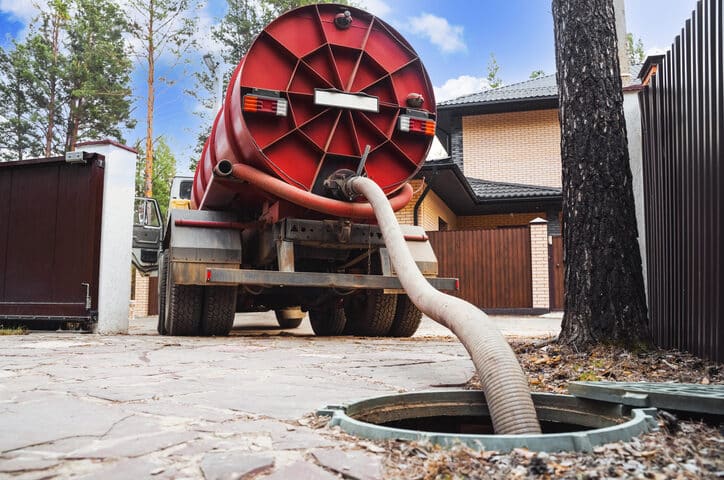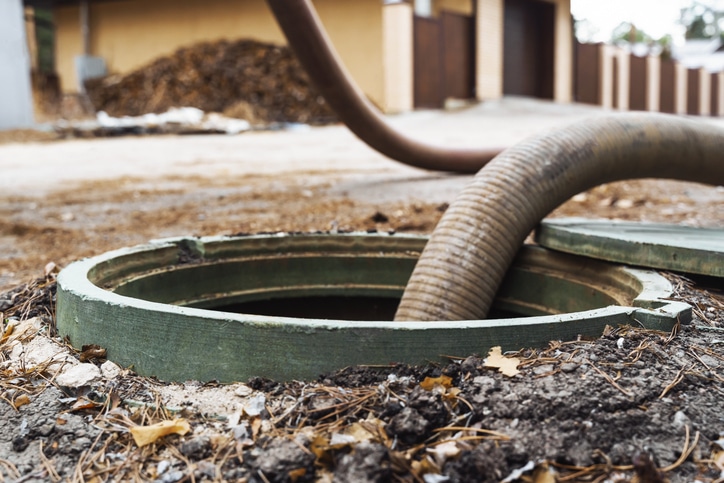
What Is Wastewater? An Overview of Wastewater Treatment
Wastewater is an often overlooked byproduct of commercial activities but plays a crucial role in our environment and public health. Every commercial business generates wastewater from restaurants to manufacturing plants that require proper treatment before it can be safely returned to nature.
The importance of managing and treating wastewater cannot be overstated. Wastewater treatment is a critical process that ensures our water resources remain clean and sustainable for future generations. In this article, we’ll explore what exactly wastewater is, the importance of wastewater treatment, and the various processes involved in treating wastewater.
Keep reading to learn more about the wastewater treatment process and discover how C&B Equipment and our innovative solutions can optimize this vital process for your operations.
Understanding Wastewater
Wastewater refers to any water that has been used or contaminated during industrial, commercial, agricultural, or domestic activities. It contains a wide range of substances, including organic matter, chemicals, pathogens, and even solid materials. Common sources of wastewater from commercial businesses include kitchen sinks, toilets, manufacturing processes, and cleaning activities.
It is essential to recognize that, while wastewater may seem like a burden or waste product for businesses, it holds immense potential as a valuable resource. By implementing proper wastewater treatment processes, companies can minimize the environmental impact of wastewater and even recover useful materials from the water.
Wastewater can generally be classified into several types, each having distinct sources and contaminants:
Blackwater is heavily contaminated wastewater that originates from toilets. It contains human waste, making it rich in pathogens and nitrogenous waste.
Greywater primarily comes from residential homes and includes water from activities like bathing, cooking, cleaning, and toilet flushing. It often contains contaminants such as food scraps, oils, soaps, detergents, and other mild impurities.
Industrial wastewater is produced by factories and industrial plants during their manufacturing processes. The type and level of contaminants vary widely based on the industry but may include heavy metals, organic pollutants, and chemicals.
Agricultural wastewater is produced by farming activities and usually contains organic matter, pesticides, and fertilizers. This type of wastewater can significantly contribute to nutrient pollution in bodies of water, leading to harmful algal blooms and damage to aquatic life.
Sewage wastewater predominantly comes from domestic sewage and urban runoff. It comprises a mixture of both blackwater and greywater and often includes water from storm drains and institutional or commercial establishments. Sewage wastewater is typically characterized by high levels of organic material, suspended solids, and pathogens.
Stormwater is another significant wastewater source resulting from rainfall or snowmelt that runs off streets, lawns, and other sites. It can accumulate pollutants, including oil and grease from roadways, pesticides from lawns, and sediment from construction sites.
All these contaminants in wastewater can pose significant threats to both human health and the environment if not properly treated. Heavy metals and chemicals can be harmful or even toxic to humans and wildlife, while nutrient pollution can lead to the depletion of oxygen in water bodies, adversely affecting aquatic life.
The Wastewater Treatment Process
Wastewater treatment involves a series of physical, chemical, and biological processes to remove contaminants and pollutants from the water. While specific wastewater treatment methods may vary depending on factors like the type of contaminants present and local regulations, the general treatment process consists of the following stages:
Preliminary Treatment
During this stage, large objects such as debris, stones, and plastics are removed from the wastewater using screens or grit chambers. These physical barriers prevent damage to downstream equipment and help maintain smooth operation.
Primary Treatment
Primary treatment involves the removal of solid materials that settle at the bottom of large settling tanks known as clarifiers. Through sedimentation and gravitational forces, suspended solids (known as sludge) are separated from the wastewater. This primary sludge is then sent for further processing.
Secondary Treatment
After primary treatment, the wastewater undergoes secondary treatment, where biological processes are employed to break down organic matter present in the water. Microorganisms such as bacteria or activated sludge are introduced into aeration tanks where they consume organic pollutants as their food source. This process effectively reduces the organic content in the wastewater.
Tertiary Treatment
Tertiary treatment focuses on removing any remaining impurities that may still be present after secondary treatment. It employs advanced filtration techniques, such as sand filtration or membrane filtration, to achieve a higher level of water quality. Tertiary treatment is particularly crucial when the treated water will be reused in sensitive environments or for specific purposes like irrigation.
Disinfection
The final stage of wastewater treatment involves disinfection to eliminate any remaining pathogens and ensure that the water is safe for reuse or discharge. Standard disinfection methods include chlorination, ultraviolet (UV) radiation, or ozone treatment. These processes effectively kill or inactivate disease-causing microorganisms, making the water safe for its intended purpose.
By undergoing these comprehensive treatment processes, wastewater can be transformed from a potential pollutant into a valuable resource, benefiting both businesses and the environment.
The Importance of Wastewater Treatment
Wastewater treatment is not just about ensuring compliance with environmental regulations; it serves as an integral part of protecting public health and preserving our natural resources. Here are some key reasons why wastewater treatment should be a priority for commercial businesses:
Environmental Preservation
Untreated or improperly treated wastewater can have detrimental effects on ecosystems. When discharged directly into rivers or oceans without adequate treatment, it can cause water pollution and harm aquatic life. By treating wastewater before releasing it into the environment, businesses contribute to maintaining the balance and health of our ecosystems.
Protection of Public Health
Wastewater often contains harmful substances and pathogens, such as bacteria and viruses, that pose severe risks to public health if left untreated. These pathogens can contaminate drinking water sources or recreational water bodies, leading to the spread of diseases. Proper wastewater treatment helps eliminate or significantly reduce these pathogens, ensuring the safety of communities and individuals.
Resource Conservation
Water scarcity is a growing concern worldwide, making it crucial to conserve and reuse water whenever possible. Treating wastewater allows for the recovery of reusable water that can be used for various non-potable purposes such as irrigation, industrial processes, and even toilet flushing. By implementing wastewater treatment systems, commercial businesses can actively contribute to sustainable water management practices.
Partner with C&B Equipment for Trusted Wastewater Solutions
Wastewater is a significant issue that affects us all. It not only has an impact on our environment, but it can also be hazardous to our health if left untreated. Understanding the importance of wastewater treatment not only helps businesses understand how to operate responsibly and sustainably but also helps pave the way for a cleaner future, where businesses play an active role in creating a more sustainable world.
At C&B Equipment, we’re committed to being your partner for comprehensive services and solutions that help you navigate the complexities of wastewater treatment.
Our expertise in wastewater management extends from advanced equipment to custom-engineered systems, ensuring your operations meet environmental standards while maximizing efficiency. Whether you’re dealing with industrial or municipal wastewater, our team of skilled technicians is equipped with the knowledge and tools to provide optimal solutions tailored to your specific needs.
Ready to take the next step in enhancing your wastewater treatment process? Contact C&B Equipment today to explore a range of services, from custom builds and equipment installation to preventive maintenance and detailed system analysis.

